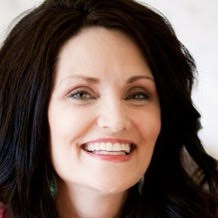( If you would rather listen -go to the end of the post for the audio version)
If you’ve landed here… you know I’ve created an entire website devoted to calling out difficult mothers and helping their daughters. Yikes! I’ve taken the hardest job on the planet (motherhood) and shone the spotlight on the cracks.
How dare I be so hard on mothers?? Aren’t we as women on the same team or at least….. shouldn’t we be? And isn’t my name-calling and picking apart every little thing a mother does wrong cruel given the masochistic, patriarchal world we live in?
Why don’t I just give mothers a break? !!!!
I’ve asked myself the same questions. You see, I, too, have suffered sore nipples from nursing a colicky baby, staggered through a day on little sleep only a few years later to feel the twist of the knife as my teenager screamed” I hate you” when I said no. And yes, I’ve struggled mightily letting my daughters go….when the time came. As a mother to adult daughters, my daughter’s boundaries hurt my feelings at times. It isn’t as if motherhood has been a cakewalk for me- far from it. But, I’ve never worked harder at anything or cared more about anything…. than being a mother. I imagine the same might be said for you. And yet. I’ve fallen short of the mark… many times. The demands of motherhood have brought me to my knees more than once. Raising another human is a messy and sacred business that brings out the best and worst in all of us. Motherhood will steal your heart, rip it out of your chest, then break it again and again as you work yourself out of a job you both loved and hated. No other endeavor asks so much of you. At least, it certainly did that to me.
So why do I insist on holding mothers to a high standard?
Simple. Mothers have power over their daughters.
There is no getting around that one. Starting in infancy and then later in adulthood, it is not and never will be a relationship of equals. There is an inherent power imbalance in the relationship. And with power comes great responsibility. That’s the math, as I see it. So when mothers use their daughters to meet their needs – consciously or unconsciously- I call foul! Enabling a mother’s dysfunctional behavior (even if mom has “good reasons” for being the way she is) only kicks the dysfunction down the road for the next generation to deal with.
The women who come after her will pay the price….anxiety, low self-esteem, depression…
that is, until someone says ENOUGH!
But the thing is… most daughters only know their “Mom”. They don’t and can’t know that there is a reason for Mom’s bullying, intrusive, clingy, needy, or appropriating behavior. Many assume everyone’s mother acts that way. All they know is that the relationship makes them feel bad about themselves. They don’t know if Mom’s Narcissistic, Borderline, or passing down her trauma. 
When you know better, you can do better.


There’s too much work to be done on both micro and macro levels.
But whether or not I am hard on mothers is immaterial in the end. Whether or not she can come with you or go where you are going is not up to you or me; it is up to her. But, it’s your job to live in your truth and move forward, and it’s mine to call out the relationship dynamics that take us backward instead of forward. Even when that means being hard on mothers, and that includes me. I am still learning from my daughters.
When we rise up, we can lift each other up.
Won’t you join us?
( Here’s the audio version if you would rather listen.)








Why is it just daughters…..why not sons too…
Hi Anthony,
Thanks for writing in. I certainly didn’t mean to indicate sons don’t have struggles with their difficult mothers.
Of course, they are equally affected. I, personally, am a mother and a daughter and see only women in my psychotherapy practice, so that’s what I write about- when writing from personal experience. I’m sure there is a ton of overlap with sons.
If you are willing- I’d love to hear about your experience.
Thanks,
Katherine
I do not think just mothers should be scrutinized in this aspect, or either, only the daughters. After all , all mothers were “Once” daughters and all daughters most likely will become mothers. Mistakes will be made. I think it truly depends on the situation. The most significant commonality that we both share, is that we are both only human beings. Neither, comes with a manual, or guide of dos and don’ts. We are not factoring in all the unexpected, unplanned interferences that real life brings upon us, as we navigate through the years of life. A person cannot always be , or become something , or someone , they do not have the tools to be. There is also the important factor of “ intent “, and “ communication “. All people all over the world are in many trying situations, all because we as human beings, do not know how to communicate properly, honestly, or know when we should communicate. I agree that there are some people that should never become mothers, or even be allowed around children, let alone other people. I don’t think we should ever just set focus on just mothers, or just daughters. I feel, we should help mothers and daughters to open up , talk, and have and listen to those difficulties that are occurring between them and learn to understand why and where they are coming from and how to learn about themselves and each other and overcome and grow together and as individuals in respect and honor of one another and as our own individual self. I feel it is equally needed to help, listen, understand and heal both the persons in a relationship. So often it’s pain and fear and helplessness behind so many of these situations. A husband, family members , poor health, lack of education or finances, can interfere with a mothers ability to parent healthy. She can be impacted by outside situations and though she truly loves her daughter or child, may be completely unaware how she is going wrong or failing. She may not have the skills. She may have become a mother as a young adult herself. She may not have had good guidance, or support as she grew through life from those who modeled to her. She may not have family or friends to guide her properly as a new mother in lending helpful direction. Just because we can give birth , does not equip us to automatically know how to be a wise, healthy minded in mothering and be aware of all the things associated with mothering properly. Though we can really be in need of being educated in these areas , it DOESN’T negate the deep undying love we hold in our hearts and souls for our children. She may be in need herself. She may innocently think she is doing everything right and not realize she is going about things in a wrong way. Daughters can be very independent at a young age. Girls often become competitive with their mothers in puberty. Peers do often negatively influence daughters against their mothers. I don’t always believe in bad mother daughter situations, as much as addressing real life, it’s impact on families and the parent child relationships. Narcissistic personality disorder is also a major factor to look for in children as well as parents and the grandparents who raised those parents. I think learning, education, counseling and learning to be understanding of and forgiveness for one another and ourselves as mothers, daughters, parents, should be key focuses. Real life comes to all who are granted to live and more often than not it is messy. I don’t think it is healthy to teach our children to have the expectation that parents are not just people also, and that often they will have difficulties. Adult children need to come into the realization that sometimes a parents can be experiencing hardship or pain. They need to at some point understand that parents can’t always be our every thing, or have all the answers , or behave even like we hope them to. I think we should help our children understand to expect that sometimes parents really are doing the best they can , not every one gets to be , or enjoy all the same blessings in life and to be forgiving of their parents. Young adults need to realize that parents are just people to, who also need sometimes, as well. That’s not to say that young adults should bear the adult burdens of parents, but to allow a little room for patience, understanding and forgiveness. Parents should understand their roles and the impact that they will have on their young children. We should always strive to shield our children from adult matters. Sometimes though as hard as we may try, life is real and they may get exposed to some things. Not all adults are good parents. Some truly do their children wrong with no concern about it. That’s entirely wrong and UN excusable. Those children truly hurt , on into adulthood and do need special attention and healing. They can be damaged, or affected for life because of their painful experiences , or true abuse, brought on by a bad parent. There needs to be more awareness brought to the public on parenting. Parenting from infancy to adulthood. It changes . Parents do not often know how to navigate these changes. They may know that they love their child always , but innocently do not know how to understand or recognize the signs of changes and what is needed at those times of change. I think it is equally important to help older children to understand some of the difficulties parents face in parenting from an emotional standpoint as well. Often we struggle with deep emotions and concerns and how to manifest or not manifest emotions. We are not magic. We are not Gods all knowing. We cannot buy and provide the world and fulfill every dream and wish. We cannot heal every wound or resolve every crises. I feel children, especially today can have a false sense of what they expect from a parent and their actual reality. Social media and media itself has painted very high demands on parenting. If a parent cannot meet up to all those expectations, often conflict can follow. Social competition among youths and society as a whole, often puts undue strain on parents in many many ways. That can have great impact on a parent who may already be struggling alone as a single parent etc. parents also have a hard time keeping up with today’s ever evolving changing world. The struggles children face today are great. Older parents and the ever changing styles of parenting can cause misunderstandings between the generations. A gap occurs. It makes fulfilling interactions often challenging for both the parents and children. It’s become a fast paced world. Older generational parents stick to what they know. Change is hard. True Abuse should never be tolerated from parent to child, or child to parent , or excused in any situation. True malice is from either is unacceptable. Some children can be as deceptive as the parent, or parents they are accusing. Identifying the true victims can be at times difficult. Some individuals, parent or child are just simply grade bearers looking for their pound of flesh, while others are truly struggling to live and be loved and accepted by one another. So , I really feel every situation is different. In that, we should never single out just one party in the relationship dynamic. There can be true hurt, lack of understanding, neglect on either side, or often just a bad set of circumstances that befell innocent peoples lives, rendering them to loose touch with one another and their direction in being a successful parent, or having that healthy fulfilling child parent relationship. I can’t feel good about just siding with a parent or the child, until I have the total picture. Not all people are good people, but not all people are bad. We should always consider the middle and what happened. Blessings to all who are struggling. It’s a hurtful place to be. Never give up hope, if there is any at all. If your situation was truly criminal, I pray Gods grace will help you to heal and move on to be around others who truly have your best interest and wellbeing at heart. I pray you find healing, peace and love, if only for yourself. Whether you are a daughter , mother, brother, father, or sibling , no one deserves to be treated wrongly.
Dear Rebecca,
Thank you for taking the time to write your thoughts and join the conversation. You raise a number of issues that I think reflect the thinking of many mothers that come across my article.
First of all, I agree with many of your points. I agree, that both mothers and daughters alike can be difficult. I have written extensively about how the road from dependence to independence is one fraught with tension and missteps on both the part of mother and daughter. That’s a given. It’s also not what I am talking about in my work and on my website.
I’m speaking about tensions that go beyond the normal struggles of every mother and daughter.
When Mom is always right and never sorry, this is a problem. When Mom can’t let her daughter go and have her own life, this is a problem. When daughters tend to their mother’s emotional needs and neglect their own, this is a problem. A problem that doesn’t just go away because mom meant well.
Additionally, I agree that many mothers who inadvertently hurt their daughters also love them deeply and do so out of ignorance or trauma that is passed down. Yet, how are we to interrupt a cycle if we don’t call out the hurt?
And although I agree forgiveness and understanding are in and of themselves good things when forgiveness comes before understanding and accountability, nothing changes. And why would it?
Cycles of dysfunction are not broken without first understanding what went wrong.
That’s where I come in.
I am a psychotherapist who cheers when daughters are able to make breakthroughs with their mothers which makes their relationships stronger. However, that isn’t always possible and the daughter who gets away from an abusive parent is one who deserves support for her choices too.
As a mother of two adult daughters, I want my daughters to be real with me, rather than merely act out of obligation and guilt and bury their resentment. It isn’t always easy, but it is always worth it.
Take care,
Katherine
Well said. My sentiments exactly. I have zero tolerance for abusive or irresponsible parenting. Being a mother…and a good mother was the most important job of my life and I wanted to do it well. Still, my 20 year old daughter went no contact two years ago. One month ago she invited me to her college graduation. The estrangement was never mentioned. I acted the way I thought any proud mother would. Celebratory dinners, brunches, pedicures, manicures. In saying goodby, she verbalized that she would like to resume regular contact. I agreed. Since then she has texted every day. Nothing serious. Just light stuff. I am baffled.
Hi Judy,
Thanks for writing and what a mystery. As any mother knows- from early childhood, much of the time, we really don’t know the why behind the behavior. And we may never know.
Here are some possibilities as I pondered your situation- They may or may not be relevant
1)Some young people don’t know how to individuate, so they cut off all contact because they don’t know how to ask for space. They may not even know that is what they need.
2)Sometimes an adult child doesn’t like themselves or the current version of themselves. It feels too painful to have a parent witness them. They need time to “get their act together” before re-emerging. In this case, their “no contact” is more a form of hiding out -and has more to do with them than you.
3)They don’t know how to tell you that what you are doing makes them uncomfortable. They just can’t find the words or the courage.
Whatever the reason, I can imagine the hurt and confusion you are left to feel and some anxiety about the future. If I were you, I’d find a way to let your daughter know that you are open to hearing about what happened for her that caused her to cut off contact so that, if possible, this painful experienced isn’t repeated.
Take care ,
Katherine
I think Rebecca is lacking insight and wisdom into what it is like being the daughter of a mother with borderline and/or narcissistic personality disorder. Like you say, you first have to face the truth of what this is and then you can begin healing. I’m 61 and still struggling with the effects this has had (and still has) on my life, even with plenty of therapy and hard work under my belt. You cannot simplify this stuff. It’s serious and devastating and has catastrophic effects on a child. I know Rebecca is well meaning, but sometimes it’s necessary to “pick on” mothers to stop this cycle of abuse. These personality disorders are real and complicated. You’re not dealing with an emotionally healthy person so things that work in a healthy relationship absolutely do not work in a relationship such as this. No one is equipped to deal with this kind of relationship/abuse and therefore, these mothers do need to be singled out so as to the help the daughters who will, most likely, become mothers themselves. And this website specifically states that it’s focus is the mother/daughter relationship. It’s that simple…yet not.
Dear Kim,
Thanks for writing in and giving us a first-hand account of your struggle and your insight into the nuanced understanding of what it takes to break a cycle.
I agree with you that you can’t underestimate the effects a disordered mother has on her child and how even years of therapy and healing can’t completely undo what is done. But as they say, “what you don’t pass back, you pass on.”
Thank you again for sharing your experience and the wisdom you’ve gained.
Best wishes on your journey,
Katherine